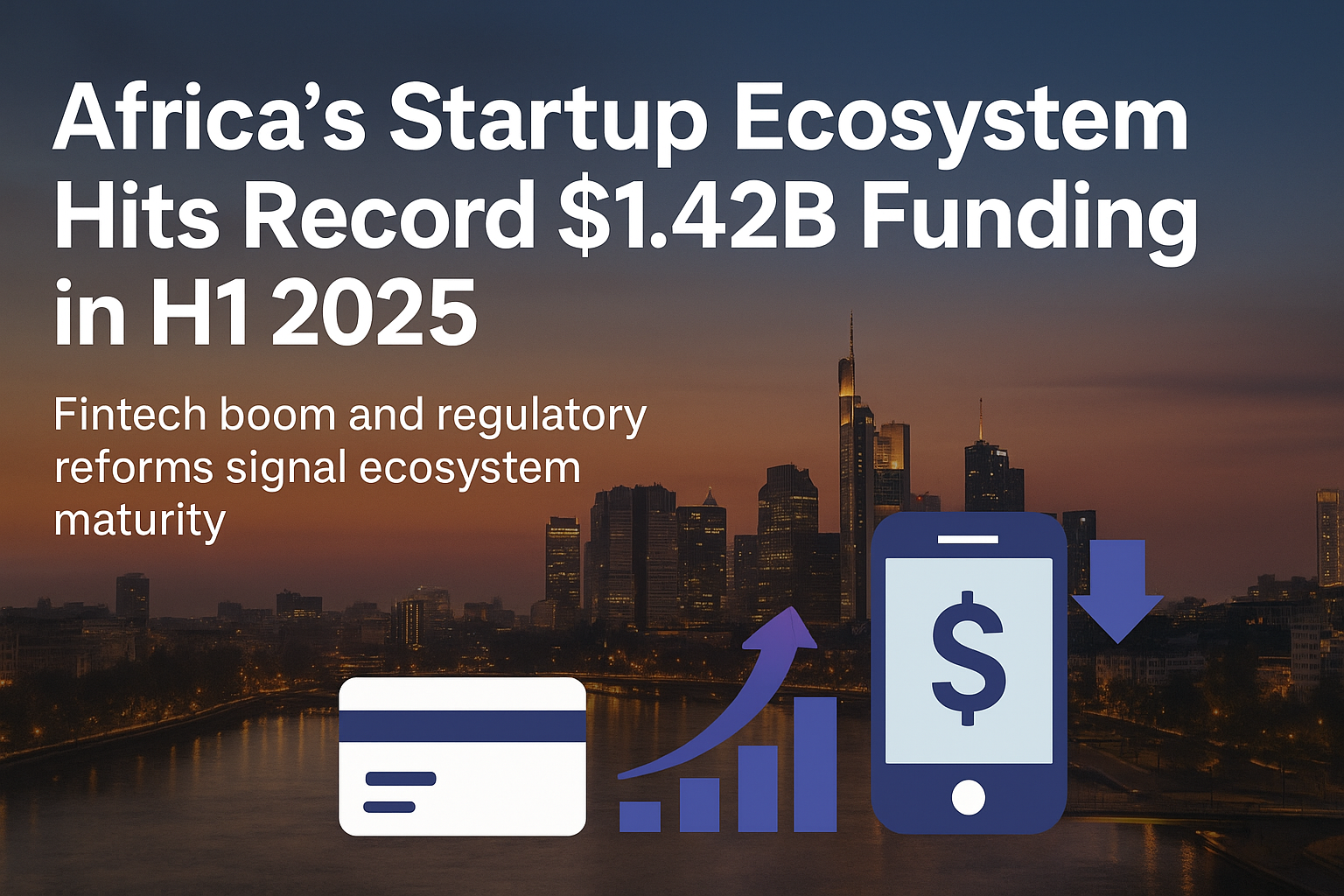Best Business Loans for Tech Companies in the US (2026 Guide to Fast Startup Funding)
Discover the top business loans for US tech companies. Compare SBA loans, startup financing, working capital lines of credit, and fast funding options for growth.

African startups raised .42 billion in H1 2025 — a 78% surge led by fintech and record M&A activity. Nigeria also launched landmark open banking and credit registry reforms to deepen its financial sector.
Africa’s startup ecosystem is showing unprecedented momentum. According to a TechCabal industry report, African startups secured $1.42 billion in the first half of 2025, marking a 78% year-over-year increase.
This surge underscores not just recovery but the resilience and scale of Africa’s digital economy, particularly as fintech continues to dominate.
Table of contents [Show]
Fintech startups claimed nearly 45% of all funding, raising an estimated $639 million in H1 2025. From digital lending platforms to blockchain infrastructure, investors remain laser-focused on scalable financial technologies designed to serve Africa’s unbanked and underbanked populations.
With mobile money, digital wallets, and online credit services booming, fintech continues to solve structural gaps in payments, identity verification, and credit access—cementing itself as the continent’s growth engine.
Africa also witnessed a record-breaking 29 M&A deals in H1 2025, representing a 45% YoY increase.
“This wave of dealmaking tells us the ecosystem is maturing,” noted Damilola Ajayi, partner at SaharaTech Ventures. “Startups are no longer just chasing seed capital—they’re scaling regionally, bundling products, and securing customer pipelines.”
Consolidation is rising in healthtech, agritech, and AI-powered enterprise tools, reflecting a strategic shift toward scale and sustainability.
As funding accelerated, Nigeria—Africa’s largest startup hub—rolled out landmark regulatory reforms to strengthen innovation and digital trust.
“These frameworks are innovation catalysts,” said Omolara Bello, policy analyst at Lagos Tech Forum. “They will fuel innovation in lending apps, neobanks, and digital financial tools.”
The first half of 2025 signals Africa’s transition from frontier market to global innovation hub.
With $1.42B raised, fintech dominance secured, and Nigeria’s bold reforms, Africa’s digital economy is not just growing—it’s maturing.
Africa’s startup ecosystem is no longer about hype—it’s about infrastructure, impact, and long-term value creation.
Investors, founders, and regulators are now aligned, building an ecosystem that thrives on innovation, trust, and scalability.
Stay with Cortex Hub for continuous insights into Africa’s fast-growing digital economy.
Discover the top business loans for US tech companies. Compare SBA loans, startup financing, working capital lines of credit, and fast funding options for growth.
Explore the top startup grants in the US and Europe for 2026, featuring equity free funding opportunities, government backed programs, and innovation grants designed to help high growth startups scale faster without giving up ownership.
Stop leaking sensitive data to cloud AI. This 2026 guide covers everything you need to deploy private LLMs locally, including hardware specs for RTX 5090 and M4 Ultra, security hardening, and high-performance cloud alternatives.
Don't spend $5,000 on hardware yet. Use this link to get $300 in Free Vultr Credit.
Deploy an NVIDIA A100 or H100 in 60 seconds and test your local LLM architecture for zero cost.
CLAIM $300 FREE CREDIT NOW